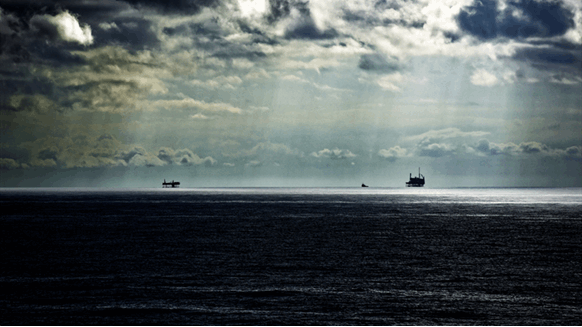Can the North Sea Survive the Oil Price Crash?

In the short-term, yes.
That’s according to Neivan Boroujerdi, a principal analyst in Wood Mackenzie’s (WoodMac) North Sea upstream team.
Longer term, however, investment is required to increase production and reduce unit costs, according to WoodMac. If the industry goes into “harvest mode”, a premature end is “inevitable”, the company noted.
“Most final investment decisions for 2020 are off the table. At current prices, nearly two-thirds of development spend could be wiped from our forecast over the next five years,” Boroujerdi said.
“Annual investment in the UK could fall below $1 billion as early as 2024. The threat of stranded assets is real – we estimate nearly six billion barrels of economically viable resources could be left in the ground, not to mention a further 11 billion of contingent resources,” he added.
WoodMac highlighted that the North Sea has weathered several storms in its 50-year existence but noted that the events of the past few weeks mean the sector is entering “uncharted waters”.
Last week, industry body Oil & Gas UK (OGUK) warned that the combination of the global economic impact of the continued spread of the coronavirus, the fall in oil price and the halving of gas prices was driving an “increasingly fragile” outlook for the UK’s offshore oil and gas sector.
“Severe pressures are already building across the sector’s supply chain, with the pressures expected to significantly undermine the industry’s businesses, jobs and contribution to the economy,” OGUK said in an organization statement.
The body said it was working with industry, regulators and government to understand how it can protect supply chain companies and jobs.
WoodMac is an energy research and consultancy company. The business traces its roots back to 1923. OGUK describes itself as the leading representative body for the UK offshore oil and gas industry. Established in 2007, it is a not-for-profit organization.
To contact the author, email andreas.exarheas@rigzone.com
WHAT DO YOU THINK?
Generated by readers, the comments included herein do not reflect the views and opinions of Rigzone. All comments are subject to editorial review. Off-topic, inappropriate or insulting comments will be removed.
- An Already Bad Situation in the Red Sea Just Got Worse
- USA Regional Banks Dramatically Step Up Loans to Oil and Gas
- Oil Markets Were Already Positioned for Iran Attack
- Valeura Makes Three Oil Discoveries Offshore Thailand
- North America Breaks Rig Loss Streak
- EU Offers $900MM in Funding for Energy Infrastructure Projects
- Germany to Provide $2.3B Aid for Decarbonization of Industrial Sectors
- Mexico Presidential Frontrunner Plans to Spend Billions on RE, Gas Power
- Chile's ENAP Says Working on Decarbonization Plan
- House Votes to Sanction China's Purchase of Iranian Oil
- Macquarie Strategists Warn of Large Oil Price Correction
- JPMorgan CEO Says LNG Projects Delayed Mainly for Political Reasons
- USA, Venezuela Secretly Meet in Mexico as Oil Sanctions Deadline Nears
- EIA Ups Brent Oil Price Forecast for 2024 and 2025
- Petrobras Discovers Oil in Potiguar Basin
- EIR Says Oil Demand Will Not Peak Before 2030
- Biden Plans Sweeping Effort to Block Arctic Oil Drilling
- Pantheon Upgrades Kodiak Estimates to 1.2 Billion Barrels
- Dryad Flags Red Sea 'Electronic Warfare' Alert
- USA Crude Oil Stocks Rise Almost 6MM Barrels WoW
- Oil and Gas Executives Predict WTI Oil Price
- New China Climate Chief Says Fossil Fuels Must Keep a Role
- Chinese Mega Company Makes Another Major Oilfield Discovery
- Oil and Gas Execs Reveal Where They See Henry Hub Price Heading
- Equinor Makes Discovery in North Sea
- ExxonMobil Racks Up Discoveries in Guyana Block Eyed by Chevron
- Macquarie Strategists Warn of Large Oil Price Correction
- DOI Announces Proposal for Second GOM Offshore Wind Auction
- Standard Chartered Reiterates $94 Brent Call
- Chevron, Hess Confident Embattled Merger Will Close Mid-2024


